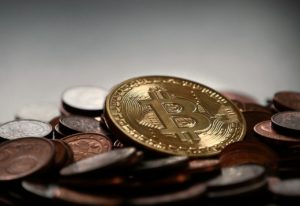
Governments and banks don’t have a monopoly on printing money. While it makes sense for countries, or wider coalitions like the EU to share an internationally recognised currency, alternatives are ever popular. While some are brief fads, others seem to have the sort of staying power of pounds or dollars.
Here are some of the most popular, most interesting or outright strangest alternative currencies that have been used down the years.
Bitcoin
Perhaps the most well known of these alternative currencies, Bitcoin is a crypto-currency. Bitcoins are ‘created’ by mining them: computers that help to process ledgers of Bitcoin transactions are rewarded with newly minted Bitcoins of their own.
The currency is regulated by secure records of transactions called blockchains: openly viewable but uncopiable ledgers, which are distributed across the computers of everyone ‘mining’ bitcoins making it the world’s first decentralised currency. You spend it in selected online stores, and even in physical shops, including CEX and some London pubs.
Local Currencies
It started in 1991, in Ithaca, New York. To encourage people to use local businesses, the area began to issue ‘Ithaca Hours’, each worth around $10, and roughly equivalent to an hour’s worth of work. Chain stores couldn’t adopt the new currency, so only local businesses benefited.
The scheme has been repeated in many other places leading to the UK’s Brixton and Bristol Pounds. In Bristol businesses can even pay their council tax in the local currency.
Airtime
In countries across Africa, Mobile Banking is taking off. Businesses like M-Pesa is bringing the benefits of a secure bank account to communities that have never had access to them before. Before that took off however, people used mobile credit as a de facto currency: it was easily transferable, and had a clear value that remained stable regardless of the official currency.
Members of the African diaspora still send airtime home as a way to contribute to family and friends.
Detergent
Yes.
Really.
Tide is one of America’s most popular detergents. It can also be exchanged with drug dealers for $5 in cash or $10 in cocaine or cannabis. It’s a popular but low profit product, which smaller retailers can rarely afford to stuck, but will buy cheaply given a chance. As shoplifting carries a lower penalty than mugging or burglary it makes sense for addicts to steal soap in bulk and trade it for the drugs they need.

